Homeschooling offers the incredible opportunity to tailor your child’s education to their unique interests and learning style. For many families, music is an essential part of a well-rounded homeschool curriculum. Not only does music education provide cognitive benefits, but it also fosters creativity, emotional expression, and a lifelong appreciation for the arts. However, integrating music lessons into your homeschool schedule can be challenging, especially when accommodating different age groups and skill levels. In this article, we’ll explore tips and techniques for structuring homeschool music lessons throughout the day, making it easier to incorporate this valuable subject into your family’s learning journey.
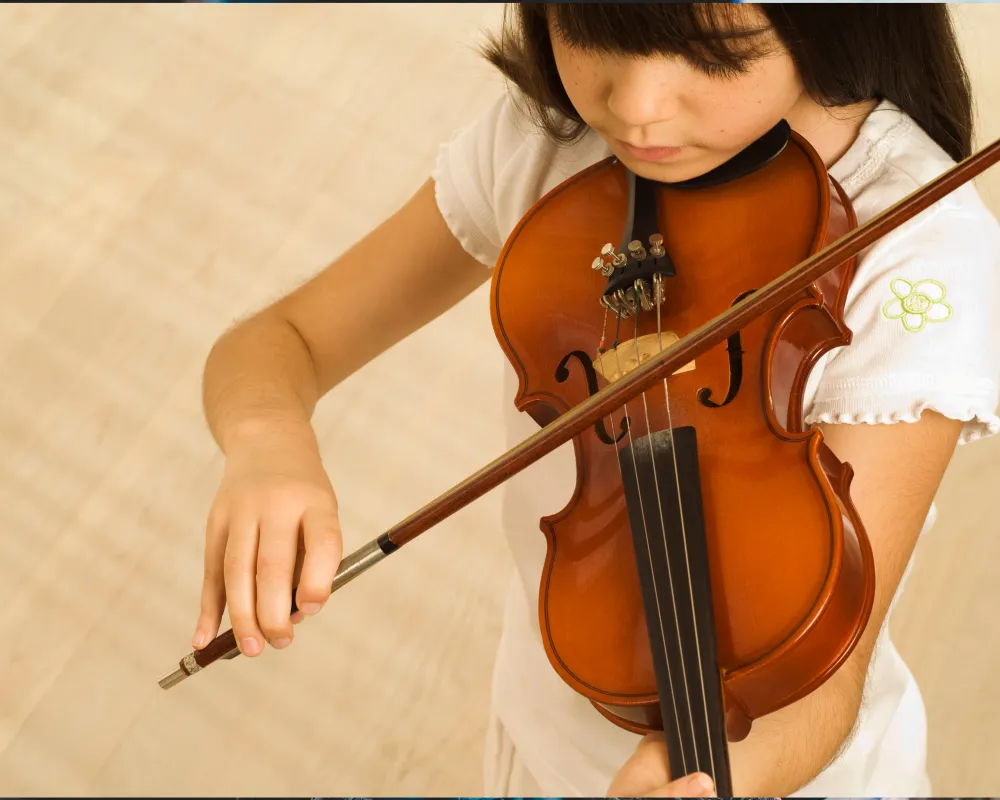
Morning Music: Starting the Day on a High Note
The morning is a prime time for introducing new musical concepts and skills when your child’s mind is fresh and receptive. Consider dedicating a block of time each morning to focused music lessons, tailored to your child’s age and abilities:
- Instrument practice: Encourage your child to begin their day with 20-30 minutes of focused instrument practice. For younger children, this may involve fun, game-like activities to build foundational skills. Older students can work on more advanced techniques and repertoire. Consistency is key for steady progress.
- Music theory lessons: Mornings are also an excellent time to dive into music theory concepts. Use interactive worksheets, games, or online resources right for your child’s level. Younger children can learn basic notation and rhythms, while older students can explore scales, chord progressions, and composition. Keep lessons engaging and bite-sized.
- Listening activities: Start the day with purposeful listening activities. Play excerpts from various musical genres and eras, encouraging your child to analyze elements like instruments, tempo, and mood. Tailor selections to your child’s interests and learning goals. This develops critical listening skills and exposes them to diverse musical styles.
Mid-Day Melodies: Integrating Music into Afternoon Learning
As the day progresses, look for opportunities to integrate music into other subject areas. This interdisciplinary approach reinforces musical concepts while enriching your child’s overall learning experience. Here are some ideas, adaptable for different ages:
- Music history lessons: During social studies or history time, explore the musical traditions and composers of the period you’re studying. Listen to representative pieces and discuss how music reflects the culture and events of the time. Younger children can focus on stories and basic characteristics, while older students can delve into deeper analysis.
- Musical math: Use music to teach mathematical concepts like fractions, patterns, and ratios. Have your child count beats, analyze time signatures, or explore the proportional relationships between notes. Adapt complexity based on your child’s math level.
- Language arts and music: Study song lyrics as poetry, analyzing rhyme schemes, metaphors, and storytelling techniques. Have younger children illustrate a song’s story, while encouraging older students to write their own lyrics or compose a melody to go with a favorite poem.

Evening Concerts: Making Music a Family Affair
The evening hours offer a perfect opportunity to make music a family affair. Here are some ideas for musical activities the whole family can enjoy:
- Family jam sessions: Set aside time to make music together, whether singing, playing instruments, or experimenting with improvisation. Emphasize the joy of creating music over perfection. Let young children play freely, while guiding older students in developing ensemble skills.
- Attend virtual concerts: Take advantage of the many virtual concerts and performances available online. Choose events right for your children’s ages and interests. Watch as a family and discuss favorite moments or insights afterward.
- Musical games and challenges: Engage in age-appropriate musical games or challenges as a family, like Name That Tune, musical charades, or creating soundtracks for favorite books or movies. Adapt rules and complexity to include all family members.
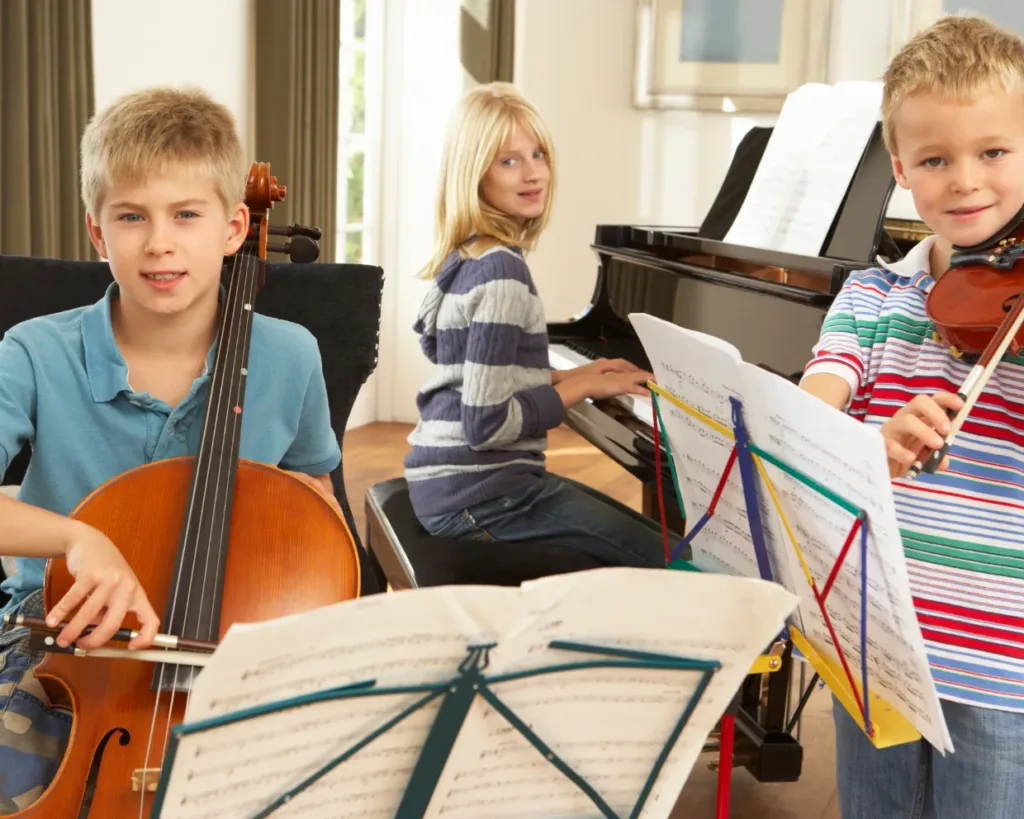
Navigating Challenges and Assessing Progress
Homeschooling music education can present some challenges, such as finding suitable resources, staying motivated, or assessing your child’s progress. Here are some tips:
– Research reputable online programs, method books, and curricula aligned with your child’s age, interests, and learning style.
– Set achievable short-term and long-term goals with your child, celebrating milestones along the way.
– Record your child’s performances periodically to track progress. Use constructive feedback and praise to keep them motivated.
– Encourage your child to take part in virtual recitals, competitions, or workshops for goal-setting and feedback from other musicians.
– Connect with other homeschooling families or music teachers for support, advice, and opportunities for musical collaboration.
One invaluable resource for homeschool music education is Practicing Musician. This online platform offers a comprehensive curriculum for learning a variety of instruments, all completely free. With over 3,500 video lessons, sheet music, and assignments, Practicing Musician provides a structured path for musical growth. The platform’s high-quality instruction and engaging content empower homeschool parents to effectively teach music, even if they don’t have a formal background in music education.
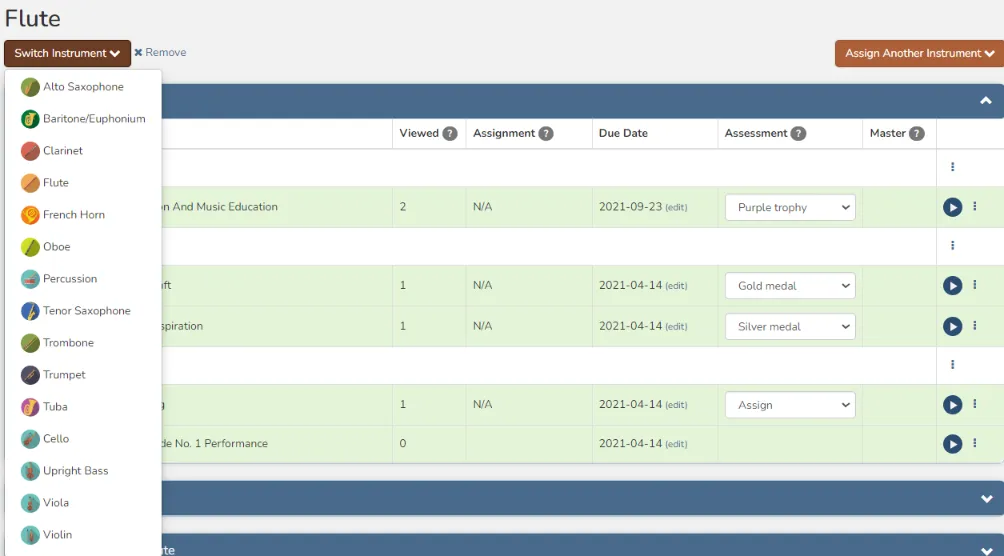
Curtain Call: Putting It All Together
Structuring homeschool music lessons throughout the day provides many benefits for your child's musical growth and overall education. By dedicating focused time to music in the morning, integrating musical concepts into other subjects during the afternoon, and making music a family activity in the evening, you create a learning environment that fosters a deep appreciation for music.
Remember to tailor your approach to your child's age, interests, and abilities, setting achievable goals and celebrating progress along the way. By staying organized, using reputable resources, and seeking support when needed, you'll be well-equipped to navigate the rewards and challenges of homeschool music education.
Embrace the power of music to enrich your child's homeschooling journey. With dedication, creativity, and a love for learning, you can help your child develop lifelong musical skills and a profound appreciation for the art form. Bravo!


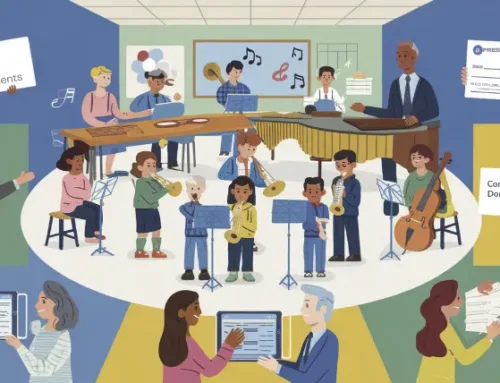
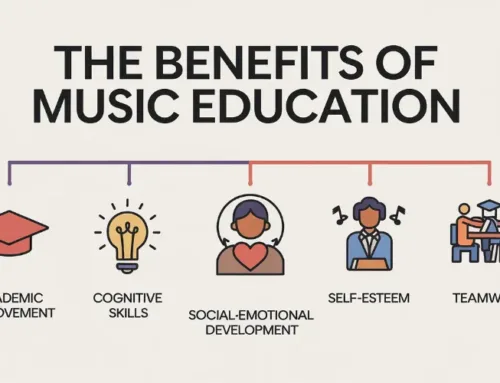



Leave A Comment
You must be logged in to post a comment.